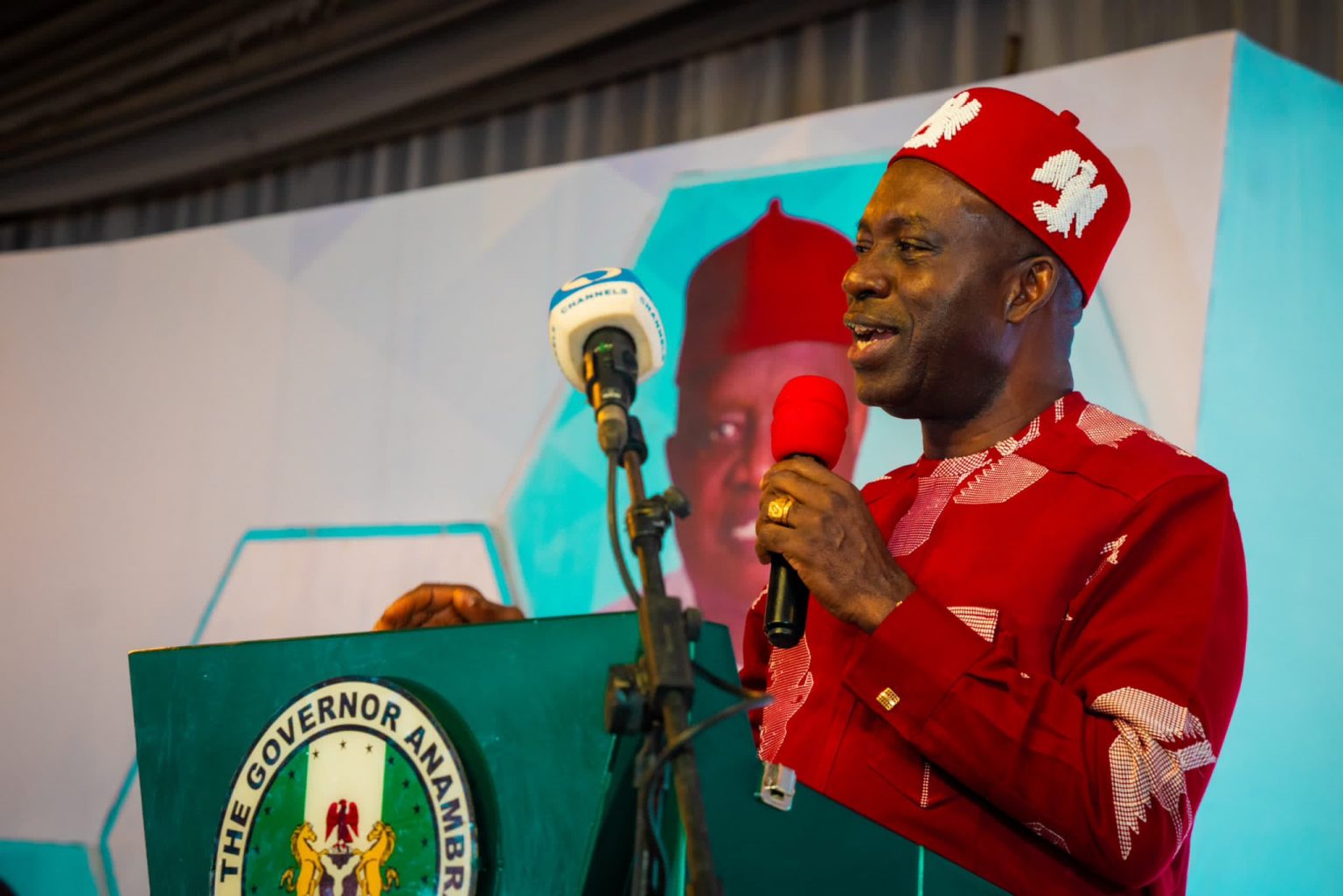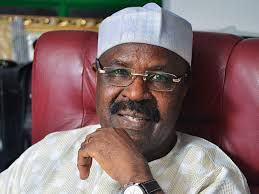23 Anambra indigenes are on d3ath row in Indonesia over drugs Governor Soludo
Anambra State Governor, Chukwuma Soludo, has revealed that 23 indigenes of the state are currently on d3ath row in Indonesia for drug-related offences.
In recent years, the issue of Nigerians facing the death penalty in Indonesia, particularly those from Anambra State, has garnered significant attention. As of April 2025, reports indicate that 23 Anambra indigenes are currently on death row in Indonesia for drug-related offenses. This situation not only highlights the severity of Indonesia’s drug laws but also sheds light on the socio-cultural and economic factors influencing the involvement of Nigerian youths in drug trafficking.
Indonesia is known for having some of the strictest drug laws in the world. Drug trafficking offenses in the country are punishable by long prison terms, life sentences, or even death. This strict legal stance is meant to serve as a deterrent and demonstrate the country’s zero-tolerance approach to narcotics. Over the years, numerous foreign nationals, including Nigerians, have been sentenced to death and executed under these laws.
YOU MAY READ
Governor Soludo Unveils Plan to Establish Centralized Wholesale Drug Centre in Anambra to Combat Fake Medicines
Anambra State in southeastern Nigeria appears to be disproportionately represented among Nigerians on death row in Indonesia. In a 2019 statement by Abike Dabiri-Erewa, Chairperson of the Nigerians in Diaspora Commission (NIDCOM), it was revealed that out of 21 Nigerians facing death sentences in Indonesia at the time, 20 were from Anambra State, with only one from Edo State.
Given Anambra’s population relative to other Nigerian states, this statistic is alarming. It raises questions about the factors at play within the state that may be contributing to this unfortunate trend. These may include socioeconomic pressures, peer influence, and the false belief systems promoted by some within the community.
A number of interrelated factors contribute to the high involvement of Anambra youths in drug trafficking. These include:
1. Economic hardship: Many young people in Anambra, like elsewhere in Nigeria, face limited job opportunities. The promise of quick wealth through illicit means becomes a tempting alternative to the harsh economic realities.
2. Influence of native doctors: According to Governor Charles Chukwuma Soludo, many young people are deceived by unscrupulous native doctors who claim they can provide charms that protect them from security checks at airports. These “magical” protections supposedly blind scanners and customs officers, allowing the carriers to smuggle drugs undetected. The belief in these charms leads youths into criminal activity under a false sense of security.
3. False hope and spiritual manipulation: Some native doctors and online “spiritual influencers” promote practices like “oke ite” (money rituals), convincing young people that they can become wealthy overnight without hard work. These practices often include dangerous and illegal activities, such as drug trafficking, and result in devastating consequences.
4. Influence of international drug syndicates: There is reason to believe that Nigerian and foreign cartels deliberately target vulnerable communities like those in Anambra, exploiting individuals desperate to escape poverty or improve their fortunes. These syndicates offer financial incentives and exploit gaps in legal awareness to recruit drug mules.
YOU MAY READ
Anambra government shuts down motel housing s€x workers, criminals, drug peddlers
On April 9, 2025, Governor Chukwuma Soludo addressed a group of defectors from the All Progressives Congress (APC) to the All Progressives Grand Alliance (APGA), where he brought up the shocking number of Anambra indigenes on death row in Indonesia. Soludo emphasized the role of deceit by fake native doctors and spiritual manipulators in luring youths into trafficking drugs under false pretenses.
He expressed deep concern about the damage these beliefs were doing to the mentality and productivity of Anambra youths. Many, he said, now believe that hard work is irrelevant and that wealth can be achieved through magic, crime, or luck. Soludo vowed that his administration would continue to arrest and prosecute those promoting such practices, particularly individuals claiming to possess spiritual powers that can shield criminals from justice.
The governor clarified that the state government is not against traditional religion or genuine traditional practitioners. Instead, it seeks to eradicate the rise of criminally inclined individuals masquerading as native doctors who endanger the youth by promoting deadly myths and illegality.
One remarkable case that highlights both the dangers of trafficking and the potential for redemption is that of Emmanuel Ihejirika. Convicted of drug trafficking and sentenced to death in Indonesia, he spent years on death row before being freed in September 2024. His release was achieved through the pro bono legal work of Nigerian lawyer Emmanuel Isha Ogebe, who pursued the case to the Indonesian Supreme Court and won.
This case illustrates that while many face legitimate charges, some may be victims of mistaken identity, procedural errors, or lack of adequate legal representation. It also demonstrates the importance of legal advocacy and international diplomacy in ensuring justice for Nigerians abroad.
The Nigerian government has consistently urged its citizens to refrain from drug trafficking and other illegal activities abroad. Following the 2015 execution of four Nigerians in Indonesia, the Ministry of Foreign Affairs issued strong warnings emphasizing that drug trafficking is a capital offense in many countries.
YOU MAY READ
NAFDAC Uncovers Counterfeit Drugs Hidden in Plumbing Materials Shops in Onitsha Market
The Nigerians in Diaspora Commission (NIDCOM) has also played a pivotal role in public education and awareness. Through its programs and media outreach, NIDCOM aims to inform Nigerians of the legal risks of drug trafficking and to dissuade them from falling prey to foreign drug cartels or domestic deceivers. There have also been diplomatic efforts to negotiate clemency or commute sentences for those on death row, though such outcomes remain rare.
Addressing the root of the crisis also involves cultural reorientation and the restoration of moral values within communities. Traditionally, native spirituality in Igbo society placed a strong emphasis on truth, justice, and integrity. Elders and traditional priests were seen as custodians of wisdom and discipline, not promoters of criminality.
Governor Soludo and other stakeholders have called for a return to these values. Communities must work to reclaim their traditional ethics, while parents, educators, and community leaders must actively counteract the growing influence of get-rich-quick ideologies and harmful superstitions. Collaboration between the government and respected traditional institutions could go a long way in helping re-educate youths and break the cycle of exploitation.
The situation facing 23 Anambra indigenes on death row in Indonesia is a tragic reflection of a deeper crisis affecting youth, values, and governance. It underscores the need for holistic strategies that include economic empowerment, public education, cultural reorientation, legal advocacy, and international diplomacy.
Without comprehensive and sustained intervention, the cycle may continue, endangering more lives and deepening the socioeconomic crisis in the region. Nigeria must confront the structural inequalities, systemic ignorance, and destructive beliefs that drive its young citizens into the clutches of foreign prisons — or worse, execution chambers.





